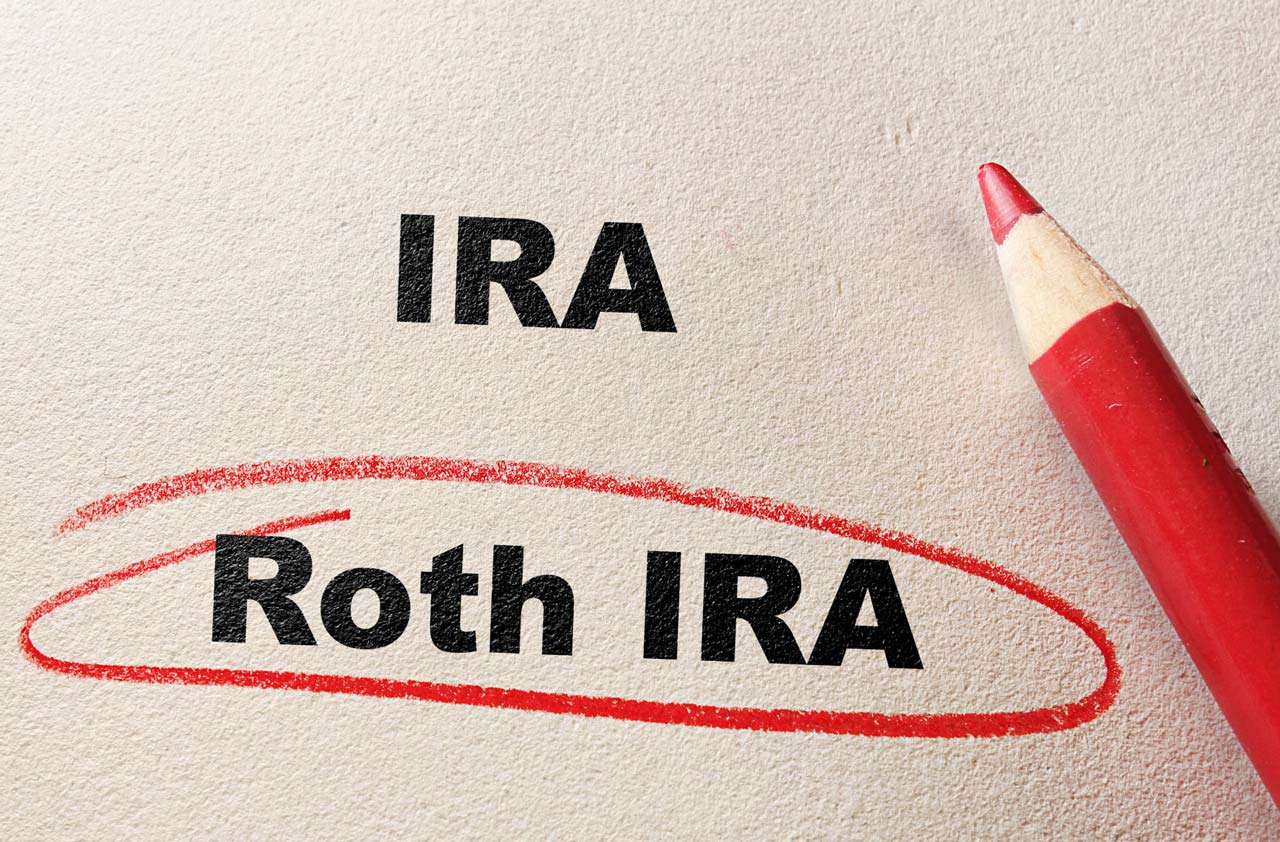11 Smart Year-End Tax Planning Tips for Your 2016 Return


Profit and prosper with the best of Kiplinger's advice on investing, taxes, retirement, personal finance and much more. Delivered daily. Enter your email in the box and click Sign Me Up.
You are now subscribed
Your newsletter sign-up was successful
Want to add more newsletters?

Delivered daily
Kiplinger Today
Profit and prosper with the best of Kiplinger's advice on investing, taxes, retirement, personal finance and much more delivered daily. Smart money moves start here.

Sent five days a week
Kiplinger A Step Ahead
Get practical help to make better financial decisions in your everyday life, from spending to savings on top deals.

Delivered daily
Kiplinger Closing Bell
Get today's biggest financial and investing headlines delivered to your inbox every day the U.S. stock market is open.

Sent twice a week
Kiplinger Adviser Intel
Financial pros across the country share best practices and fresh tactics to preserve and grow your wealth.

Delivered weekly
Kiplinger Tax Tips
Trim your federal and state tax bills with practical tax-planning and tax-cutting strategies.

Sent twice a week
Kiplinger Retirement Tips
Your twice-a-week guide to planning and enjoying a financially secure and richly rewarding retirement

Sent bimonthly.
Kiplinger Adviser Angle
Insights for advisers, wealth managers and other financial professionals.

Sent twice a week
Kiplinger Investing Weekly
Your twice-a-week roundup of promising stocks, funds, companies and industries you should consider, ones you should avoid, and why.

Sent weekly for six weeks
Kiplinger Invest for Retirement
Your step-by-step six-part series on how to invest for retirement, from devising a successful strategy to exactly which investments to choose.
Moves you make between now and the end of the year can have a significant effect on how much tax you have to pay next April, particularly when it comes to investments you might hold outside a retirement account.
The goal is to reduce your taxable income, or defer it to 2017 (when there's a solid chance that tax reform via Donald Trump and the Republican-controlled Congress will would produce lower rates).
But time is running short. Review our list and get cracking.

Adjust Your Portfolio
Allowing taxes to dictate your investment strategy is rarely a good idea. But if you’re already considering selling appreciated securities or other assets, cutting them loose by year-end could save you money.
If you’re in the 15% tax bracket, you’ll pay 0% on long-term capital gains. In 2016, you’re eligible for the 0% capital-gains rate if your taxable income is $37,650 or less if you are single, or $75,300 or less if you are married filing jointly.
If you won’t fall into the 10% or 15% tax bracket, perhaps someone in your family will—an adult child, for example, or an elderly parent. Some appreciated stock could a make nice stocking stuffer with tax savings to boot. But it's complicated -- we'll discuss the details on a later slide.

Top Off Your Retirement Savings Plan
- Money contributed to an employer-sponsored retirement plan, such as a traditional 401(k), isn’t included in your taxable income. In 2016, you can contribute up to $18,000 or $24,000 if you’re 50 or older, by the end of the year. If you haven’t maxed out, ask your employer if you can make an additional contribution before December 31.
If you have self-employment income from a side job, you can sock away even more. You can contribute up to 20% of your net self-employment income to a Simplified Employee Pension, up to a total contribution limit of $53,000 for 2016. (Unlike 401(k) contributions, there’s no December 31 deadline for SEP deposits. You can make 2016 deposits anytime before the due date of your tax return.)
Another option: Depending on your income, you can also deduct contributions to an IRA, up to a maximum of $5,500 in 2016 (and $6,500 for workers 50 or older). You can make 2016 IRA contributions anytime before April 17, 2017. Roth IRAs, however, do not offer this upfront tax break because withdrawals are tax-free in retirement.

Convert to a Roth
If your income declined this year—because you retired, for example, or took an unpaid sabbatical—consider whether this is the time to convert some or all of the funds in your traditional IRA to a Roth before year-end. You must pay tax on the amount you convert (except for any after-tax contributions), but if you’re in a lower bracket now than you’re likely to be in later, it can really pay off. Once you convert, future earnings are tax-free, as long as you’re at least 59½ and have owned the Roth for at least five years when you withdraw the money. To get the maximum amount of tax-free growth, use money from outside your IRA to pay the tax bill.

Give to Charity
This is a great time of year to clean out your closets and garage, but you can write off donations to a charitable organization only if you itemize deductions. A few bags full of gently used clothes and household items can add up to hundreds of dollars in tax deductions, but valuing those donations can be difficult. (Try Turbo Tax's free tool.)
If you donate a used car worth more than $500 to charity, your deduction will be limited to the amount the organization receives when it sells it. But you may be able to claim a bigger deduction based on the vehicle's fair-market value if the charity uses it to deliver meals, for example, or gives it to a needy individual. The charity will list the vehicle's sale price, or whether an exception allowing a higher deduction applies, on Form 1098-C, which you must attach to your tax return. Because of previous abuses, donations of used cars and other noncash items may attract extra scrutiny from the IRS. So keep scrupulous records.
Send cash donations to your favorite charity by December 31 and hang on to your canceled check or credit card receipt as proof of your donation. If you contribute $250 or more, you'll also need an acknowledgment from the charity.

Give Really Big to Charity
If you plan to make a significant gift to charity this year, consider giving appreciated stocks or mutual fund shares that you've owned for more than one year. Doing so boosts the savings on your tax return. Your charitable-contribution deduction is the fair-market value of the securities on the date of the gift, not the amount you paid for the asset, and you never have to pay tax on the profit.If your favorite cause can't accept donations of appreciated securities, consider opening a donor-advised fund instead. The fund administrator will sell the securities for you and add the proceeds to your account. You can deduct the value of the securities on your 2016 tax return and decide later where you want to donate the money.
And, for the first time in years, retirees won’t have to wait for Congress to renew a valuable tax break for charitably inclined IRA owners. Last December, Congress made permanent a law that allows seniors age 70½ and older to donate up to $100,000 from their IRAs directly to charity. The contribution counts toward your required minimum distribution and isn’t included in your adjusted gross income. That could qualify you for tax breaks tied to your AGI and reduce or eliminate taxes on your Social Security benefits.

Give to Your Family (or Other Lucky People)
You can give up to $14,000 to as many individuals as you like before Dec. 31 without filing a gift-tax return. If you’re married, you and your spouse can give up to $28,000 per recipient.
The case for using the annual gift-tax exclusion for transferring wealth to adult children (or other lucky recipients) isn't as strong this year as it has been in the past. The estate-tax exemption, which is indexed to inflation, is now $5.45 million. Only a handful of ultra-wealthy families need to worry about the estate tax at that level. But 11 states and Washington, D.C., have lower estate-tax thresholds than the federal government. New Jersey, for example, taxes estates valued at as little as $675,000.
If you're feeling really generous, you could do it all over again on January 1, 2017, when you can give up to $14,000 per person.

Give the Gift of Securities
If your adult children or parents are in the 10% or 15% tax bracket (taxable income of $37,650 or less for singles, or $75,300 for marrieds), they qualify for the 0% tax rate on long-term capital gains. When they sell the securities, profit that would have been taxed at a rate as high as 23.8% on your return will be tax-free on theirs. Children under 18 and full-time students under age 24 are subject to the “kiddie” tax. Investment income that exceeds $2,000 will be taxed at the parent’s higher rate.
To qualify for the special rate for capital gains, the securities must have been held for at least 12 months. For securities given as gifts, though, the holding period includes the time you owned them.
This strategy requires finesse. When you sell stocks or funds, your gains lift your taxable income. Sell too much and you could push yourself out of the 15% tax bracket, which means you’ll end up paying taxes on some of your profits. To avoid taxes entirely, you’ll need to calculate the amount of gains you can reap before your income exceeds the threshold. Note also that your state may tax long-term gains that go tax-free at the federal level.

Penalty-Proof Your Return
If you expect that you'll owe money when you file your 2016 tax return next spring, you can avoid an underpayment penalty by boosting your withholding now. Hustle over to whoever handles your payroll to adjust this.
You needn't pay every penny of the tax you expect to owe. As long as you prepay 90% of this year's tax bill, you're off the hook for the penalty. Or you can escape its reach, in most cases, by prepaying 100% of last year's tax liability. However, note that if your 2015 adjusted gross income topped $150,000, you'll have to prepay 110% of last year's tax liability to avoid a penalty.
Taking these steps to boost your withholding at year-end will shield you from an underpayment penalty on your 2016 return, no matter how much you actually owe when you file your return.
If you have both wage and consulting income and expect to owe money on your tax return, you'll do better by boosting the taxes withheld from your last few paychecks rather than trying to make up the shortfall with your final estimated quarterly payment, due January 15, 2017.
Taxes that are withheld are treated as if they were spread out evenly throughout the year, so that approach sidesteps an underpayment penalty; the estimated-tax-payment approach does not.

Fiddle with Your Income Payments
If you think a year-end bonus is in the works, ask that it be paid next year. That way, it won’t increase your 2016 taxable income. (If the firm has already announced that it will pay bonuses in December, though, it’s 2016 income even if you don’t cash the check until January.)
If you’re self-employed, send bills to clients in late December so you won’t receive payments until after the first of the year. And if you get income from a closely held firm, consider delaying that dividend.

Hurry Up that Procedure?
In 2016, most taxpayers can only deduct unreimbursed medical expenses that exceed 10% of their adjusted gross income. (If you or your spouse are 65 or older, you can deduct medical expenses that exceed 7.5% of AGI.) That high hurdle prevents most taxpayers from writing off medical costs. If you’re close, though, consider scheduling medical or dental work before the end of the year to clear the 10% bar and take advantage of this tax break on your 2016 tax return. Deductible expenses include everything from laser eye surgery to a portion of your long-term-care insurance premiums.
Another consideration: Tax reform plans under consideration aim to lower rates and simultaneously reduce deductions and credits. The ability to deduct medical expenses could go away altogether. Something to consider—but don't rush your surgeon unnecessarily.

Get that (Underwater) House Sold
If you’re negotiating with your mortgage lender to sell your home for less than you owe on the mortgage, be sure to get the contract signed before December 31. Ordinarily, forgiven debt is taxable, but Congress extended through the end of this year a provision that excludes from taxes up to $2 million in forgiven mortgage debt on a principal residence. The exclusion will apply to mortgage debt forgiven in 2017 if the agreement to discharge the debt is signed in 2016.
Profit and prosper with the best of Kiplinger's advice on investing, taxes, retirement, personal finance and much more. Delivered daily. Enter your email in the box and click Sign Me Up.

Block joined Kiplinger in June 2012 from USA Today, where she was a reporter and personal finance columnist for more than 15 years. Prior to that, she worked for the Akron Beacon-Journal and Dow Jones Newswires. In 1993, she was a Knight-Bagehot fellow in economics and business journalism at the Columbia University Graduate School of Journalism. She has a BA in communications from Bethany College in Bethany, W.Va.
-
 Here’s How to Stream the Super Bowl for Less
Here’s How to Stream the Super Bowl for LessWe'll show you the least expensive ways to stream football's biggest event.
-
 The Cost of Leaving Your Money in a Low-Rate Account
The Cost of Leaving Your Money in a Low-Rate AccountWhy parking your cash in low-yield accounts could be costing you, and smarter alternatives that preserve liquidity while boosting returns.
-
 I want to sell our beach house to retire now, but my wife wants to keep it.
I want to sell our beach house to retire now, but my wife wants to keep it.I want to sell the $610K vacation home and retire now, but my wife envisions a beach retirement in 8 years. We asked financial advisers to weigh in.
-
 States That Tax Social Security Benefits in 2026
States That Tax Social Security Benefits in 2026Retirement Tax Not all retirees who live in states that tax Social Security benefits have to pay state income taxes. Will your benefits be taxed?
-
 Ten States with the Lowest Sales Tax in 2025
Ten States with the Lowest Sales Tax in 2025Sales Tax Living in one of the lowest sales tax states doesn't always mean you'll pay less.
-
 10 Least Tax-Friendly States for Middle-Class Families
10 Least Tax-Friendly States for Middle-Class FamiliesState Tax Here’s what living in one of the least tax-friendly states for middle-class families costs residents.
-
 Low-Tax States for 'Middle-Class' Families in 2026
Low-Tax States for 'Middle-Class' Families in 2026State Tax Here are the best states for families with middle incomes (due to low tax burdens).
-
 15 States That Tax Military Retirement Pay (and Other States That Don't)
15 States That Tax Military Retirement Pay (and Other States That Don't)retirement Taxes on military retirement pay vary from state-to-state. How generous is your state when it comes to helping retired veterans at tax time?
-
 5 Tax Deadlines for October 17
5 Tax Deadlines for October 17tax deadline Many taxpayers know that October 17 is the due date for filing an extended tax return, but there are other tax deadlines on this date.
-
 Penalties for Filing Your Tax Return Late
Penalties for Filing Your Tax Return Latetax deadline Stiff penalties await those who didn't file their return (or pay any tax owed) by the tax filing deadline.
-
 9 Tax Deadlines for April 18
9 Tax Deadlines for April 18tax deadline Between requesting a tax extension, making IRA or HSA contributions, and meeting other tax deadlines, there's more to do on Tax Day than just filing your federal income tax return.
